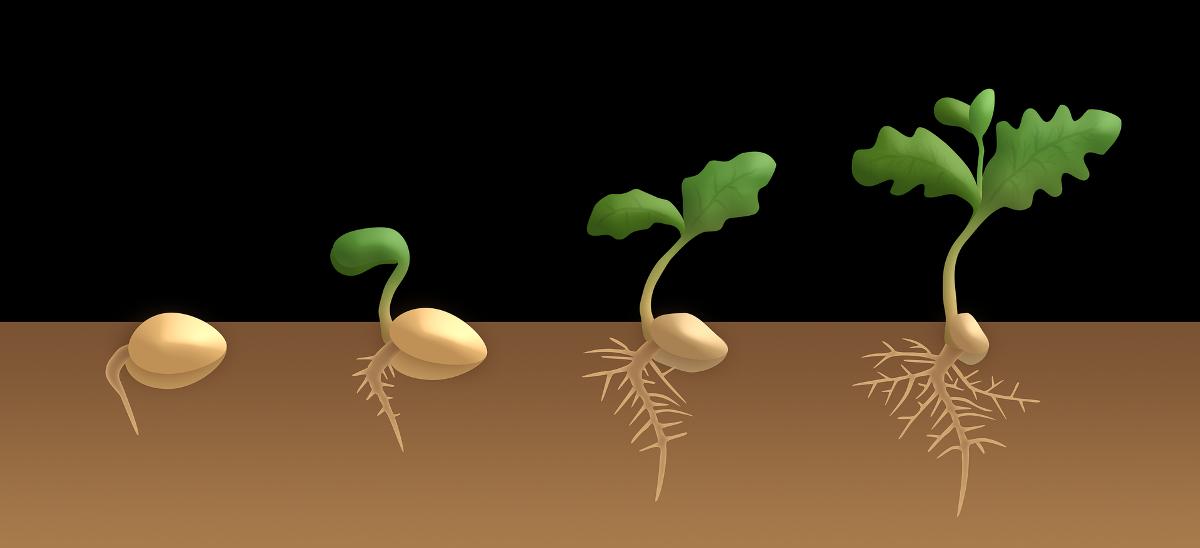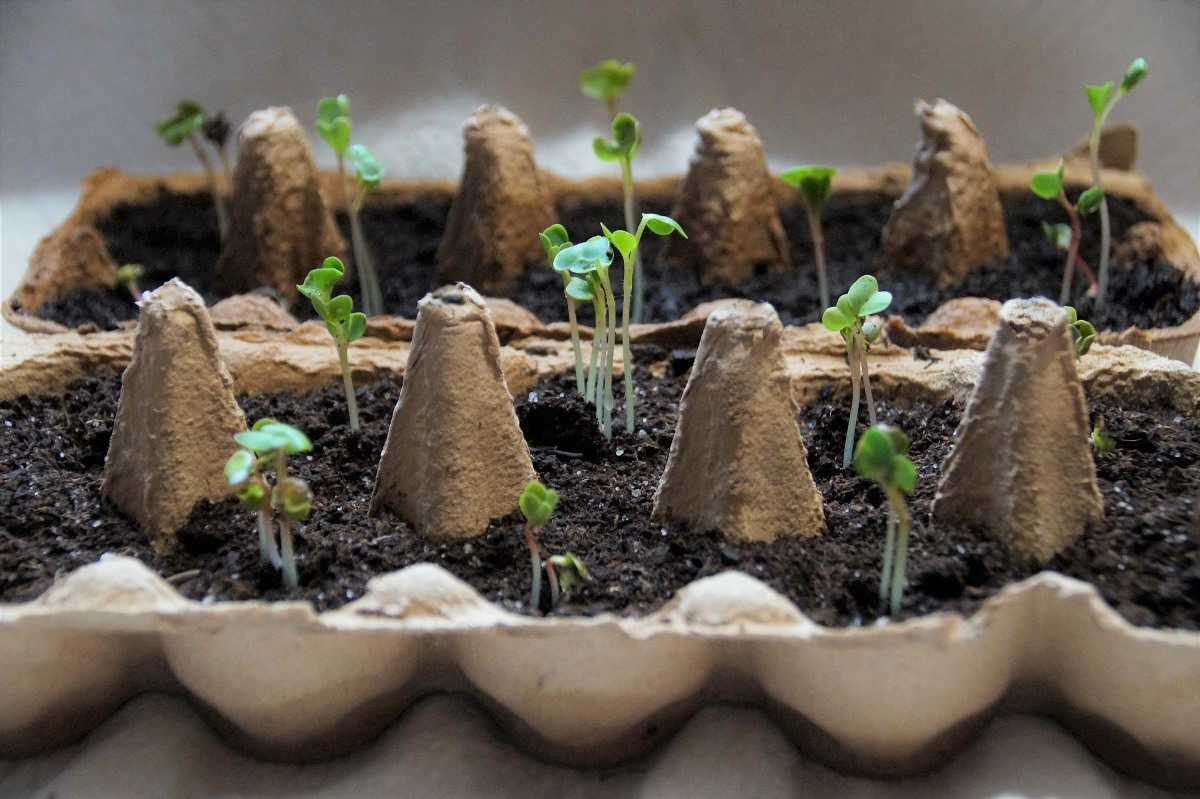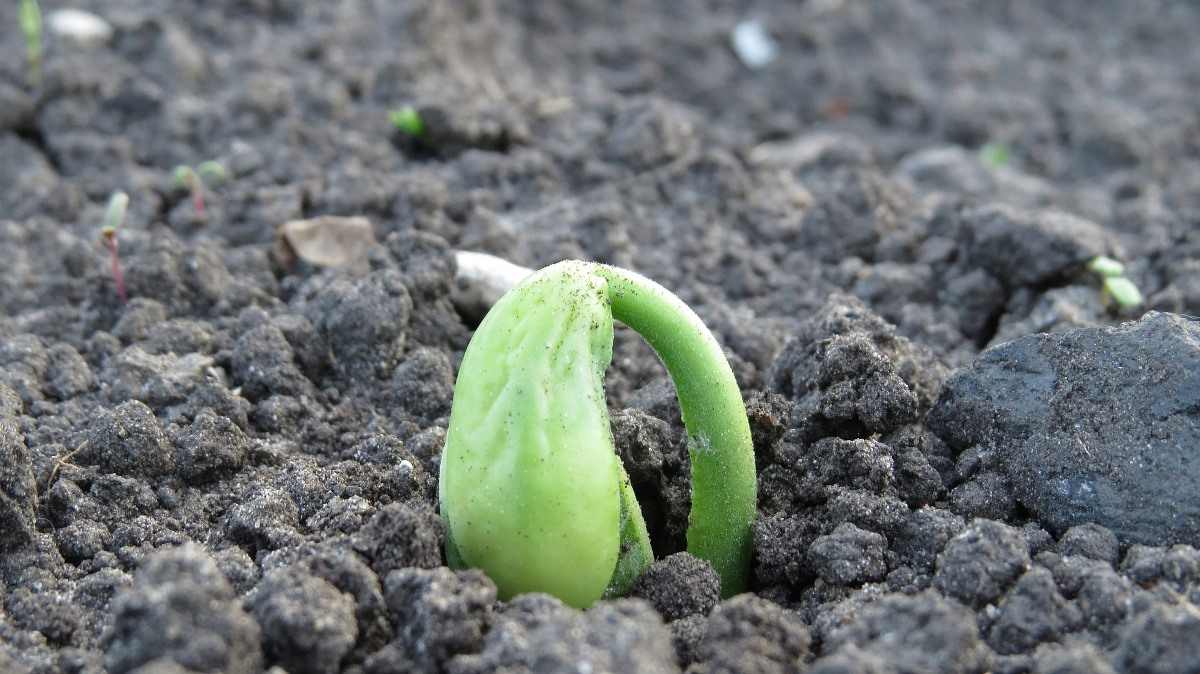Vegetable Seed Germination Chart
Hello gardeners, we are back with a new, very different, and interesting topic called vegetable seed germination chart. Do you want to know the process of vegetable seed germination? Well, this article may help you out to know about vegetable seed germination.
Introduction to Vegetable Seed Germination Chart
Germination is the process in which an organism or plant grows from a seed or similar structure. Vegetable seed germination is very greatly dependent upon the soil temperature. Other near equal factors include seed vitality that means the age of the seed, soil moisture, soil air, and soil conditions, and even workability. Seed germination usually depends on both internal and external conditions.
A Step By Step Guide for Vegetable Seed Germination Chart
The seeds which are inside the vegetables are designed to spread out, this process is called seed germination. Many different plant species grow into a plant from a single seed of it. Seed germination includes few steps. These steps are explained in this article.
Flow Chart of Vegetable Seed Germination

Vegetable Seed Germination Special Requirements
Different vegetables will have different germination requirements. It is very important to know the germination requirements of the seeds if you are planting to ensure success.
Requirements for normal vegetable seed germination
all the vegetable seeds will germinate at nearly about 16-21°C if they are in contact with all requirements like moist, aerated soil. the soil should be moist to about 50 to 75 percent of the moisture-holding capacity and that should not be very wet. Many vegetable seeds generally like cool-weather crops will germinate in the soil as cool as 7-10°C a few in even cooler soil.

- Seeds that need a good amount of light to germinate or sprout out
Some vegetable seeds, mostly very small ones require light but not darkness to germinate. The seeds from these plants are usually very small and very natural. These type of seeds are listed below:
- Lettuce seeds
- savoury seeds
- Seeds that germinate from soaking in water
Some seeds germinate quicker if they’re soaked in water or water and a drop of vinegar before they’re planted. Seeds with hard coats, big seeds, and seeds with wrinkled coats enjoy soaking in water before planting. These seeds are listed below:
- Asparagus seeds
- Beans seeds
- Carrots seeds
- Corn seeds
- Okra seeds
- Parsley seeds
- Peas seeds
- Pumpkins seeds
- Squash seeds
Even beet seeds and Swiss chard seeds will also germinate from soaking in water.
- Seeds that germinate from being scratched or nicked
Seeds with very hard coats will germinate more quickly and fastly if that seed coat is scratched or nicked and then soaked in water before planting them. This process is known as scarification. These types of seeds are listed below:
- Bean seeds
- Melon seeds
- Squash seeds
- Seeds that germinate in cool soil
Most cool-weather or climate vegetables have naturally adapted to germinate very well in cool not very warm soil. These types of seeds are listed below:
- Arugula
- Broccoli seeds
- Brussels sprouts
- Cabbage seeds
- Carrots seeds
- Cauliflower seeds
- Chinese cabbage
- Kale seeds
- leeks
- Lettuce seeds
- Mustard seeds
- Onions seeds
- Parsley
- Peas
- Radish seeds
- Spinach seeds
- Turnip seeds
Seed Germination Process of Different Vegetables
- Broccoli Seed Germination and Selection
- Asparagus Seed Germination and Variety Selection
- Seasonal Flower Gardening: Best Practices for Spring, Summer, Fall, and Winter
- How to Grow Hibiscus from Flower
- Plantation Ideas for Home Decoration: A Beginners Guide
- Flower Garden Designs and Layouts for Beginners
- Planting and Spacing Techniques in Papaya: A Beginner’s Guide
- Growing Gold: Essential Techniques for Planting Pineapples
- How to Make Kalanchoe Plant Bushy: Home Remedies and Solutions

- Cilantro or coriander vegetable seed germination chart
Cilantro seeds germinate within 7 to 10 days.
Seeds will germinate with soil temperatures of 12 to 20°C. Cilantro plants will withstand temperatures down to freezing.
The Cilantro or coriander seeds will germinate for nearly about two or three weeks and quickly produce leafy growth.
Sow coriander seeds in spring as early as 2 to 3 weeks after the last expected frost date.
Usually, the coriander seeds are sown from late March until early September month.
- Beans vegetable seed germination chart
In case if you miss this: Pruning House Plants.

A bean seed begins or starts to germinate when the soil gets to the right temperature and then moisture penetrates the seed coat.
Bean seeds germinate or sprout out when they are dissolved in water or cracks open the hard casing around the seed.
The ideal or optimum bean vegetable seed germination temperature will be 21°C to 26°C and the germination will be very slow and poor when soil temperatures are below 15°C.
The germination process may take two weeks or more if soil temperatures are below 15°C.
Beans can sow from early October to mid-March depending on the climate or weather. The seed needs to be sown from 20 to 40 mm deep inside, depending on the climate or weather.
- Guar or cluster beans vegetable seed germination chart
During the rainy season, these seeds are sown 2 to 3 cm or 1 inch deep on ridges and in furrows in the summer months.
Guar or cluster beans must be planted when the soil temperature is above 21°C; the ideal and optimum soil temperature for germination is 30°C.
Complete guar or cluster beans sowing time from mid-July to mid-August. Sowing uses a row to row distance of 30 cm and sows the seeds at depth of 2-3 cm.
- Broccoli vegetable seed germination chart
Germinating broccoli seeds takes nearly about 5 to 10 days depending on how warm or hot the soil is. Warm or hot soil may speed up the broccoli germination process, while cool soil may slow it down.
Broccoli seeds germinate best in temperatures between 7 and 29°C, and they can be germinated or sprouted in a house, in a greenhouse, or in an outdoor garden’s soil.
The ideal and optimum time for seed sowing is from mid-August to mid-September.
You need to sow the seed from ¼ to ½ inch or 6 to 8 mm deep in the seed-starting mix.
The method of sowing in broccoli can be done by line sowing and even broadcasting method.
- Cabbage vegetable seed germination chart
Cabbage vegetable seed germination will do best when they are exposed to a constant temperature of 18°C to 21°C. At this temperature range, cabbage seeds will germinate or sprout within three to four days.
The ideal cabbage seed germination temperatures range from 7°C to 29°C. Outside of the optimum temperature range, seeds will germinate anywhere from 4 to 14 days. Cooler temperatures will slow the germination procedure or process, while warmer temperatures will speed it up.
Cabbage seeds will need a planting depth nearly of 1/2 to ¾ inch with seedlings, later thinned to 12 to 24 inches apart, in rows that are spaced a minimum of 18 to 34 inches apart.
- Spinach vegetable seed germination chart
Seed germination in spinach will take nearly about 7 to 14 days but sometimes seed can take even up to 3 weeks to germinate in cold or cool soil.
Spinach seeds germinate very well in temperatures from 4°C to 24°C or for proper seed germination; the soil should not be warmer than 21°C.
You need to sow the spinach seed one-half inch deep and two inches apart in beds or rows. Spinach produces out very beautifully in cool and fall conditions, but it is very tricky to persuade the seed to germinate in the hot or warm conditions of the late summer season.
- Kale leafy vegetable seed germination chart
Kale vegetable seed germinates very well in warm soil. Seed germinates will take nearly about 5 to 7 days at or near 21°C; sometimes these seeds may take up to two weeks to germinate if the soil is cold or cool.
Cover the seeds with about half-inch of soil and you should not allow the seeds to dry out before germinating.
Sow kale seed in very early spring or late summer or a fall or winter. Sow seed ¼ inches to ½ inch or 6-13mm deep inside.
Better to sow kale seeds 4 inches or 10cm apart and later thin the seedlings to 16 inches to 18 inches or 40 to 45cm apart by using the thinning in salads.
If you want to sow the kale seeds in summer for the fall harvest, it is better to place the seed in a folded damp paper towel placed in a plastic bag and keep it on the top of the refrigerator for five days before sowing.
- Peas vegetable seed germination chart
Peas will germinate or sprout within 21 to 30 days if the soil temperature is 3°C.
At temperatures of 18°C to 21°C, the pea’s seeds will germinate or sprout within 7 to 14 days.
Better to sow the seeds outdoors 4 to 6 weeks before the last spring frost date, when the temperature of soil reaches at least 7°C.
Early sowing is completed in October month whereas optimum varieties are sown in November within the plains of North India. Within the hills, the primary crop of pea is sown from the centre of March to the top of May through a second crop is sown in autumn.
- Tinda vegetable seed germination chart
The ideal or optimum soil temperature needs to be at least 25°C for the Tinda seeds to germinate or sprout.
The Tinda vegetable seed germination takes place nearly about first 6 to 8 days.
Better to sow the seeds on one side of the channel. After 15 days to take care of two/pit at 0.9 m spacing. The seed sowing to reaping time is going to be about 45 days.
Soak the Tinda seeds overnight. Sow 2 to three seeds at a depth of about an inch or 2-3 cm keep damp.
- Tomato vegetable seed germination chart
Sowing tomato seeds need to be done at the end of the winter, towards mid-March, indoors and with an ideal temperature of around 18°C to 20°C.
Tomato seeds will usually germinate nearly about 5 to 10 days. It is better to keep the seed germination temperature range 21 to 27°C.
The lower the temperature will slow the seed germination. However, temperatures range below10°C or above 35°C are very poor for germination.
Sow the tomato seeds in late February to mid-March by using a heated propagator or a very warm, south-facing windowsill. The temperature of the compost should be nearly 22°C for the seeds to germinate or sprout.
- Onions vegetable seed germination chart
Onion seed germination may be very faster with a temperature of 20 to 25°C and with very slight temperature drops at night.
Warm-up soil temperatures, on the other hand, can trigger the onion seed germination in as little as 4 days.
Better to sow the seed ¼ to ½ or 6-12 mm inch deep; plant sets about one inch or 2.5 cm deep for giant onions, 2 inches or 5 cm deep for green onions, and space rows 12 inches or 30 cm apart.
Onion seeds should germinate in 4 to 10 days at a perfect and optimal temperature of 21°C or thereabouts; germination will take longer in colder soil however germination is often slow in chilly soil.
- Cauliflower vegetable seed germination chart
Cauliflower vegetable seed germination usually takes nearly about eight to ten days.
Sow the cauliflower seeds half an inch deep and 2 to 3 inch apart. Then thin plants to 15 to 24 inches apart and space rows 24 to 30 inches apart.
The ideal and optimum soil temperature for seed germination temperature is 27°C. Even though, the cauliflower will germinate at temperatures as low as 10°C.
- Okra vegetable seed germination chart
The okra seeds generally take 2 to 12 days to germinate or sprout.
Okra seeds take 27 days to 30 days to germinate in the soil that ranges 18°C. If the soil is 24°C, seed germination time will cut in half of it.
Sow nearly about 3 to 4 okra seeds to a pot or across the flats and then clip away or remove all the weaker seedlings once the strongest seedling is about two inches or 5 cm tall and then again sow seed ½ inch or 13 mm deep.
The ideal and optimum soil temperature for germinating okra seed needs to be 29°C.
- Moringa or drumstick vegetable seed germination chart
Soak moringa or drumstick seeds in water for 24 hours for the quick and fast germination process.
Drumstick is a warm-season plant so the sowing season of it is after the end of the cool season. It is usually planted after the end of the cool season.
The moringa or drumstick plant will germinate for nearly about 12 days.
In the sowing method, the seeds should be planted in a neighbourhood with light, dry soil, and placed in holes dug 30cm or 1ft deep and 30cm wide. In each plant 3 to five seeds at a distance of 5cm or 2inches apart, and water the soil, such the topsoil remains moist.
- Brinjal or Eggplantvegetable seed germination chart
Eggplant or brinjal seeds will germinate within 7 to 14 days, depending on the heat, moisture provided, and the moisture content, and the age of the seed.
Eggplant seeds germinate at temperatures from 15 to 35°C and seedlings will emerge in seven to ten days.
Sow eggplant seed or brinjal seed ¼ to ½ inches deep spaced 4 to 5 inches apart.
Eggplant seeds germinate in about five to six days after sowing.
- Cucumbers vegetable seed germination chart
The cucumber germination temperature range is going to be 15°C to 32°C and doesn’t plant until soil reaches 18°C.
Germination may pause days or longer at cooler temperatures.
Better to sow the cucumber seeds from the mid-spring season into small pots of seed starting or general-purpose potting mix. Sow two cucumber seeds about an in. or 3cm deep, then water well.
Cucumber seeds need temperatures to a variety of a minimum of 20ºC to germinate or sprout, so either place pots during a propagator for speedier germination, or just wait until late spring to urge started.
- Pumpkin vegetable seed germination chart
Pumpkin vegetable seed germination takes place within 4 to 10 days at 29°C or warmer.
Sow pumpkin seeds indoors two to three weeks before the last expected frost in spring and then transplant them into the garden after all danger of frost has passed.
Sow pumpkin seeds outdoors when the soil temperature range has warmed up to 21°C.
Pumpkin seeds will not germinate well at a soil temperature range below 18°C.
- Carrot vegetable seed germination chart
The ideal and optimal soil temperature range will be 7-30°C.
Carrot seeds take nearly about14 to 21 days to germinate. The carrot seeds are very tiny and they need to be sown very shallowly. The trick is to take care of the top-most layer of soil damp during the long germination period.
Directly sow the seeds in April to mid-July for harvests from July to November month.
Direct sow winter-harvest carrots within the first fortnight of August month. Sow at three-week intervals for endless harvest.
- Chard or Swiss chard vegetable seed germination chart
Chard vegetable seed germination takes in 5 to 7 days at or near 16-18°C but sometimes seed can take up to 3 weeks to germinate if the soil is cold.
Germination won’t occur in soil chillier than temperature 10°C.
Sow chard seeds ½ to 1 inch deep and a couple of to six inches apart, in rows 18 to 24 apart.
Sow seeds 1 inch or 2.5cm apart; later thin seedlings to six inches or 15cm apart; use the thinning in salads.
- Turnips vegetable seed germination chart
Turnip seeds may germinate or sprout at a temperature as low as 4°C. Sow the seeds about 1 inch apart and canopy them with a 1/4- to half-inch layer of soil.
Sow seed ½ or 12 mm inch deep and make certain to stamp the soil firmly in; turnips often fail to germinate when there’s insufficient contact with the soil.
Sow the seed 2 inches apart and later thin them to 4 inches to six inches or 10-15 cm apart for giant storage turnips, and a couple of to 4 inches apart for greens.
The seeds should germinate in 3 to 10 days at an optimal temperature range of 21°C or thereabouts; germination will take longer in colder soil.